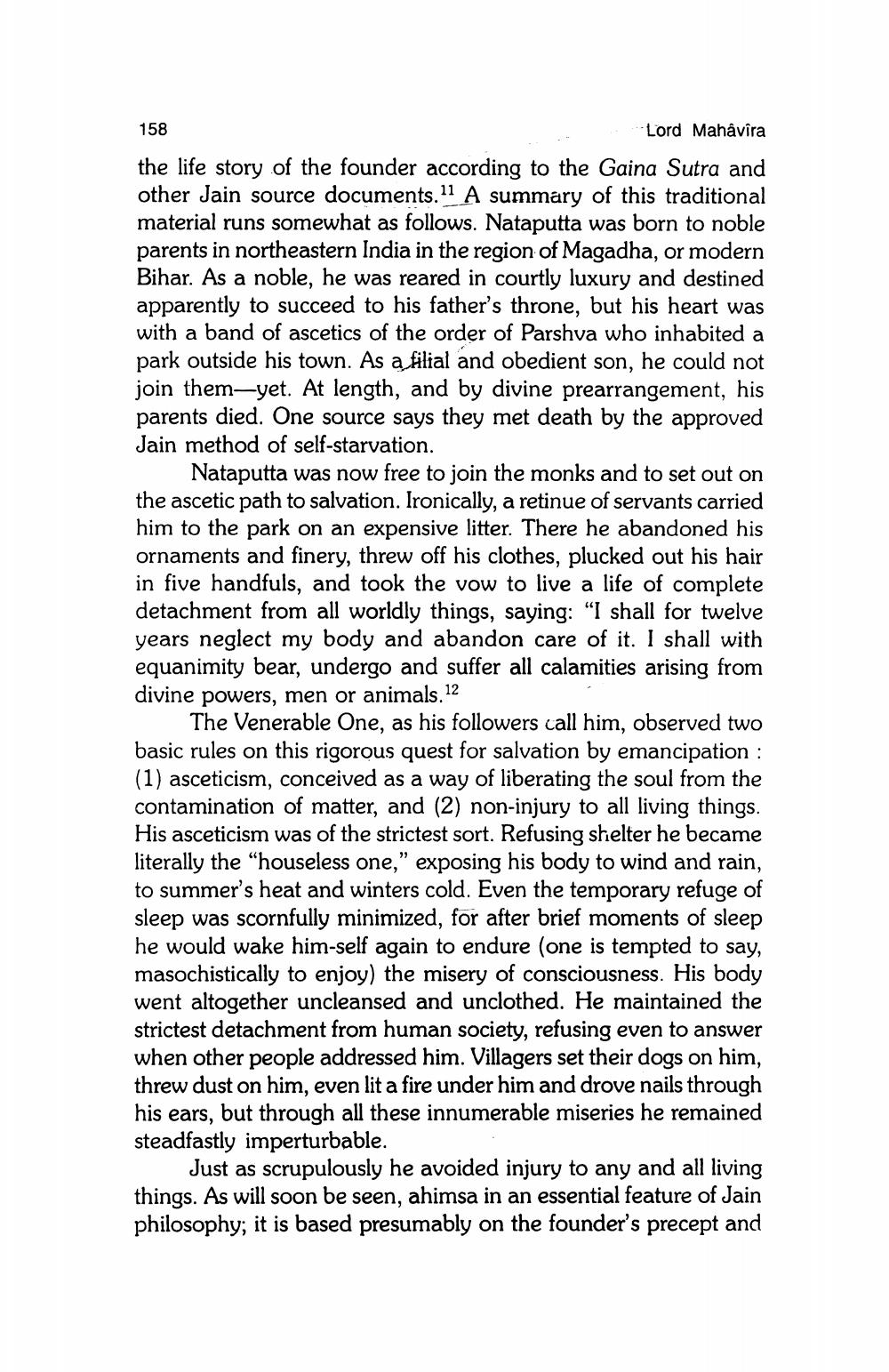________________
158
Lord Mahavira the life story of the founder according to the Gaina Sutra and other Jain source documents. 11 A summary of this traditional material runs somewhat as follows. Nataputta was born to noble parents in northeastern India in the region of Magadha, or modern Bihar. As a noble, he was reared in courtly luxury and destined apparently to succeed to his father's throne, but his heart was with a band of ascetics of the order of Parshva who inhabited a park outside his town. As a filial and obedient son, he could not join them—yet. At length, and by divine prearrangement, his parents died. One source says they met death by the approved Jain method of self-starvation.
Nataputta was now free to join the monks and to set out on the ascetic path to salvation. Ironically, a retinue of servants carried him to the park on an expensive litter. There he abandoned his ornaments and finery, threw off his clothes, plucked out his hair in five handfuls, and took the vow to live a life of complete detachment from all worldly things, saying: “I shall for twelve years neglect my body and abandon care of it. I shall with equanimity bear, undergo and suffer all calamities arising from divine powers, men or animals. 12
The Venerable One, as his followers call him, observed two basic rules on this rigorous quest for salvation by emancipation : (1) asceticism, conceived as a way of liberating the soul from the contamination of matter, and (2) non-injury to all living things. His asceticism was of the strictest sort. Refusing shelter he became literally the "houseless one,” exposing his body to wind and rain, to summer's heat and winters cold. Even the temporary refuge of sleep was scornfully minimized, for after brief moments of sleep he would wake him-self again to endure (one is tempted to say, masochistically to enjoy) the misery of consciousness. His body went altogether uncleansed and unclothed. He maintained the strictest detachment from human society, refusing even to answer when other people addressed him. Villagers set their dogs on him, threw dust on him, even lit a fire under him and drove nails through his ears, but through all these innumerable miseries he remained steadfastly imperturbable.
Just as scrupulously he avoided injury to any and all living things. As will soon be seen, ahimsa in an essential feature of Jain philosophy; it is based presumably on the founder's precept and




